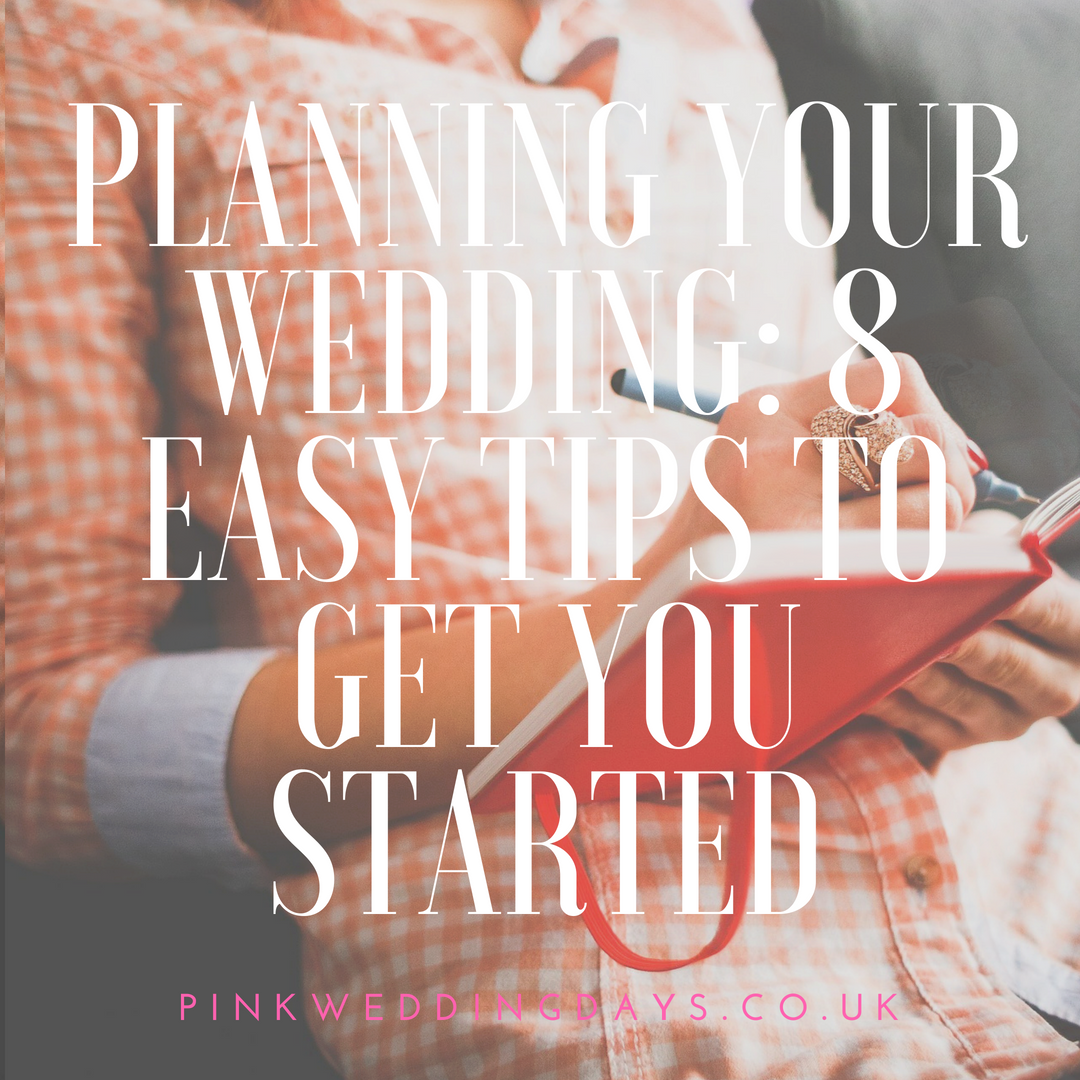Planning Your Wedding: 8 Easy Tips to Get You Started
You’re engaged!
Congratulations!
But now it’s time to float down from cloud-nine and get onto the serious business of planning a wedding.
Congratulations!
But now it’s time to float down from cloud-nine and get onto the serious business of planning a wedding.
If you’re feeling a bit sick at the thought of having to arrange an entire wedding ceremony and reception, then know that’s entirely understandable. It’s a tough gig. As a wedding guest, you may not have appreciated the amount of organising that goes into a wedding day. Just remember that It’s a marathon, not a sprint (unless, of course, you’re getting married quickly). You’re allowed to enjoy this bit. In these first few days and weeks, anything is possible.
Dream big.
Dream big.
Eager to get started? There’s nothing wrong with being quick off the mark. Sometimes the early bird really does catch the worm BUT giving yourself a bit of breathing space and the time to daydream and research might give you some surprising options.
1 By keeping a wedding folder or notebook, you’ll be able to organise and keep track of your thoughts, ideas and any moments of inspiration. You can use paper, or digital note taking on your phone or computer. Whichever you choose, you should make sure that any digital notes are backed up either on The Cloud or on an external hard drive, and if you've been writing in a physical notebook, then make sure your contact details are clearly marked in case you ever lose it.
We’d recommend, too, factoring a 10% over-spill into your budget.
For example, if you can afford a £15,000 wedding, ring fence £1,500 of it. This will make your ‘true’ budget £13,500, BUT it will give you some wriggle room if anything unseen arises or if there's an emergency or a last-minute decision. It should help you stop you overspending.
4. Get Wedding Insurance. According to a survey by Hitched, the average time it takes to plan a wedding is twelve months. A lot can happen in a year: your wedding venue could burn down, your caterer could go bankrupt, your partner could become seriously ill, a parent could die suddenly OR a guest could knock into a 17th-century vase at your stately home reception sticking you with a hefty bill. Wedding insurance isn’t expensive but it could seriously save your backside IF the unthinkable happens.
5. Keep your planning big and vague initially. Think about the kind of wedding you want without being bogged down by specifics. Broad strokes are best at first as it will help focus your mind on what you actually want rather than what you think you want. Believe us, there is SO much choice when it comes to weddings. Don’t jump for initial ideas – a better or more suitable one might be just around the corner.
6. Think of the ceremony: Religious? Celebrant lead? Humanist? A destination wedding? A small wedding? A big party? Any themes that you like the look of? Now is the time to daydream to scroll Pinterest, to read wedding magazines, to ask friends, to watch say yes to the dress marathons – to attend wedding fairs, to have chats with married friends.
7. Mark your calendar with any local wedding fairs or open days. Whether it’s a big wedding exhibition or a small local showcase at a hotel, you’ll get the see the process of wedding planning close up. It’s a great chance to see a venue dressed for a ceremony and reception, too.
8. Think about the date. Is there a time frame for the wedding? Do you need to be married by a certain point (if you’re in the armed forces or your pregnant), or is there a necessary timeline during which you need to save up? If you’re unsure about a rough date, then what about a season? Note that summer weddings are busier and more expensive and that winter weddings are a fantastic opportunity for a theme.
How you plan your wedding will be individual to you and your partner. Getting married is a big step. Planning a ceremony and reception is a steep learning curb, but nobody says it has to be stressful or difficult to do – the power to plan the perfect wedding is in your hands.














Comments
Post a Comment
Got something you'd like to share?